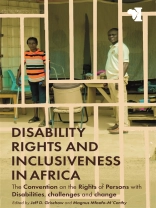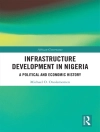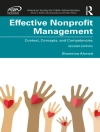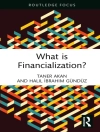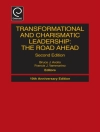Many have praised the United Nations Convention on the Rights of Persons with Disabilities (CRPD), first adopted by the UN in 2006, as a revolutionary step towards disability rights in Africa. But how real is the progress towards equality for the less able and those with poor sight, hearing or suffering from mental health issues? What are the barriers to the CRPD’s successful implementation on the continent, and how might we enforce inclusiveness and equality among those disadvantaged? This book brings together the findings of researchers in Ghana, Cameroon, Nigeria, Ethiopia, Uganda, Kenya, Zimbabwe and South Africa to offer grassroots’ perspectives on the challenges and possibilities of achieving disability rights under the CRPD. Challenging the generally optimistic view presented to date, the contributors provide evidence-based trenchant critiques of the Convention, highlight the ways in which disability rights are interpreted in varying contexts and with different disabilities, and examine particular issues in relation to children and women. Finally, the contributors suggest ways of moving forward and achieving disability rights in Africa.
Содержание
Introduction
Jeff Grischow & Magnus Mfoafo-M’Carthy
1 Framing Disability Rights within African Human Rights Movements
Bonny Ibhawoh
2 Legislation as a Care institution? The CRPD and Rights of Adults with Intellectual Disabilities in South Africa
Charlotte Capri
3 Examining the Implementation of Inclusive Education in Zimbabwe
Tsitsi Chataika & Lincoln Hlatywayo
4 Barriers to the Implementation of Education Article 24 of the CPRD in Kenya
Billian Otundo
5 A Disabled Disability Movement: The Paradox of Participation in Uganda
Herbert Muyinda & Susan Reynolds Whyte
6 Implementation of the CPRD in Ethiopia: Grassroots Perspectives from the University of Gondar Community-Based Rehabilitation Programme
Mikyas Abera
7 Knowledge and Utilization of the CRPD and Persons with Disabilities Act 715 of Ghana among Deaf People
Wisdom Kwadwo Mprah & Juventus Duorinaah
8 CRPD Article 6 — Vulnerabilities of Women with Disabilities: Recommendations for the Disability Movement and Other Stakeholders in Ghana
Augustina Naami & Joana Okine
9 Assessing the benefits of the CRPD in Cameroon: The Experience of Persons with Disabilities in the Buea Municipality
Wisdom Kwadwo Mprah, Maxwell Peprah Opoku & Bernard Nsaidzedze Sakah
10 African Ontology, Albinism and Human Rights
Elvis Imafidon
Conclusion
Jeff Grischow & Magnus Mfoafo-M’Carthy
Об авторе
Susan Reynolds Whyte is a Professor at the Department of Anthropology, University of Copenhagen, who carries out research in East Africa on efforts to secure well-being. Her publications deal with the management of misfortune, gender, generation, changing health care systems, disability, social lives of medicines, legacies of violence, HIV and other chronic conditions.
